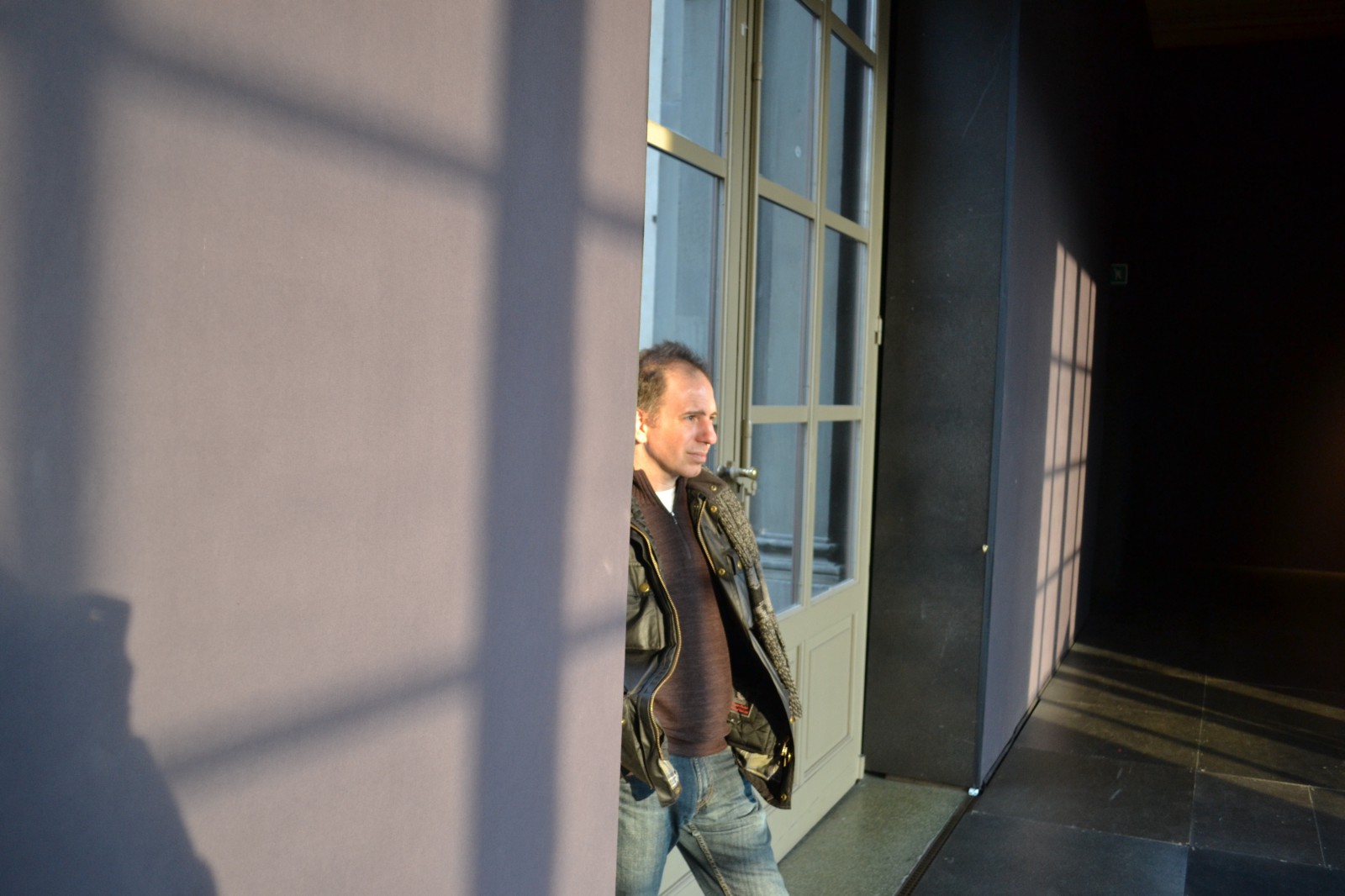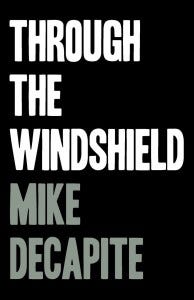interviews
INTERVIEW: Mike DeCapite, author of Through the Windshield

by Pete Simonelli


Mike DeCapite’s first novel, Through the Windshield, was first released in 1998 and has been out of print for over ten years. Red Giant Books re-released it on June 2nd. In the late 1980s and 1990s, excerpts of the novel were published in CUZ magazine and developed a cult status. DeCapite has published three other books and has finished his second novel, Ruined For Life!
Pete Simonelli: TTW was written primarily in your twenties, and the narrator, Danny, really resonates with that kind of energy and resilience. He’s almost proverbial. You’re now 50. How different would the book be if you were writing it today?
Mike DeCapite: Well… My first reaction to that question was that there’d be more ironic distance. But who’m I kidding? Through the Windshield isn’t that kind of novel and I’m not that kind of writer. In everything I write, the narrator knows as much as I do. The narrator is me, or some part of me. So the book probably wouldn’t be much different. There are things I’d change, and I had to resist the urge to make improvements when preparing the book to hand over to Red Giant, but the book is its own thing now, it’s like a kid, you know, it goes its own way and becomes its own thing, apart from you. If I wrote it now, it would be less wide-eyed, more self-aware… but I wouldn’t write it now. It’s a young guy’s book.
PS: I can remember you talking about how Danny is a conceit of your own personality or ego, in a similar way that Celine used Ferdinand in his novels. But that “conceit” aspect has always stuck with me and has made me wonder where the line is drawn between a self-aware narrator and the character he/she portrays in the book. What’s the difference between you and the character? Is there any difference at all? I mean, I’d rather throw my troubles, whatever they may be, onto a character than I would onto my “real” self. Is there some kind of catharsis involved in the conceit?
MD: Really? I said that about Danny in Through the Windshield and not [my second novel] Ruined for Life!? It’s certainly true of Ferdinand, but if I was talking about Through the Windshield, it sounds like I was trying to convince myself. Maybe I needed to feel that the book succeeded on terms other than its own. Now I’m more secure in the understanding that it’s all fiction automatically, even if it’s all true, and that I’ve always been more interested in how you put the material together than whether the material is factual or fictional. From this distance, I don’t see much difference between myself and Danny. If there was a conceit, it was whatever I present naturally when talking about myself.
PS: I think that’s always been true of everything you’ve done. I think every writer, even poets, are continually driving further into themselves and just learning how to cloak that more. Kind of ironic, but true all the same. Things like motives or technique just get a little more nuanced as we get older, maybe. The act of “searching” isn’t found so much in travel or drugs or whatever; you can find yourself hitting upon ideas while taking a walk around the neighborhood, in the city, in a park, wherever, right?
MD: Oh yeah. At the gym, wherever. In fact, anywhere but while writing.
PS: Christ, I know. But you hit on something that I’ve always liked (and probably the most) about Windshield: its authenticity to time itself, as if the pages are rolling along in real time with Danny, in the cab especially, which would explain the prose poems included in the novel. All of your writing has that on-hand quality of presence about it. Does a lot of the writing come from a note or thought written down on whatever’s at hand, or do you actually carry a notebook around with you on a daily basis? And does having a notebook hinder you or help you?
MD: When I was writing TTW, I probably wrote things down on scraps of paper and bar napkins like anyone else. Most of it you never use or even look at again. But I wrote the book away from Cleveland, where it’s set, so it wasn’t written as it happened, or even from notes I took when I lived in Cleveland (except the parts called “Summer Journals”). How it does what it does with time is sort of mysterious to me, though part of it is that my first book was all journal entries, and that book — with its alternation of anecdotes and observations of the weather — became a template for this one. It’s how it came naturally to me to write a book. And there was no plot, like TTW. Without a plot, you’re free to appreciate all the things you normally leave out because of the plot. It’s like when you watch a movie for the second time, right? If you’re in no suspense about what happens, you can see everything that’s going on. So the time in TTW seems like the present tense, like you’re just hanging out with these guys. And that’s part of why the book is good when reread. A lot of people who’ve read it have read it again.









